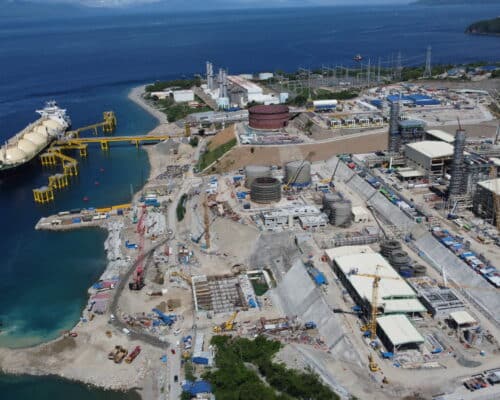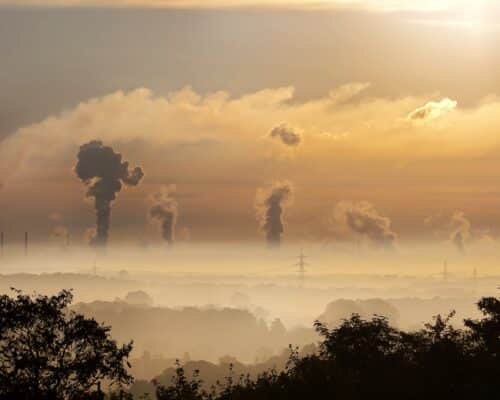Articles

In a Warming World, the Philippines is Giving Far Too Warm a Welcome for Gas [Op-Ed]
Despite the grave socio-economic and climate impacts, the US and Japan are notorious champions of LNG. Will President Marcos' meeting with Japanese Prime Minister Kishida and US President Biden give a genuine outcome for renewables, or is this another parade of gas as bridge fuel deception?

Ammonia-Coal Co-firing Plans Risk Worsening the Air Quality Problem in India and Pakistan
Experts describe technologies like CCS and hydrogen-ammonia co-firing as false solutions to climate change since they will perpetuate the use of fossil fuels. However, scientific evidence indicates that they also pose air pollution and health risks – problems India and Pakistan already have to deal with.
Renewable Energy in Malaysia 2024 – From Oil To Sustainability
Malaysia's energy mix is heavily geared towards coal, oil and natural gas. However, the country has ambitious renewable energy and decarbonisation goals over the next 30 years. The rapid development of domestic renewable energy is crucial to stay on track.
Top 10 Uses of Natural Gas
Natural gas is increasing in popularity as an alternative to oil and coal. However, it is still a fossil fuel, producing carbon dioxide and methane emissions. The world needs to consider if natural gas is a viable fuel in the long term and should develop alternative renewable infrastructure.
Wind Energy in South Korea – Opportunities and Challenges
The wind energy sector can become the difference that gives South Korea's renewable energy progress that much-needed boost. The country's vast potential for offshore wind is already starting to attract some of the leading developers in the industry. Judging by the first signs, South Korea's future promises to be "windy."
Hydrogen Oil: Green vs Blue, What’s the Difference?
Hydrogen energy is significantly more efficient than fossil fuels. Even more importantly it can be produced in a sustainable way and is considered a "renewable energy" source. Unfortunately, this is not true for all types of hydrogen energy and largely depends on how it is produced.

Best Ammonia Stocks of 2024
The green ammonia market is growing, with a rapid expansion predicted before 2030. This gives rise to a range of stock choices that investors can use to capitalise on the market and support the energy transition.
Top Energy Companies In Singapore 2024
Singapore's energy mix heavily favours fossil fuels, but the country is aiming to change this. As a result, several of the leading energy companies in the country are developing renewable energy projects. This will likely be spurred on by government subsidies and favourable policies in the coming decade.
Environmental Issues in the Philippines and New LNG Projects
The fossil gas expansion in the Philippines, mainly fueled by SMC, is taking place amid the worsening climate and energy crisis. The move risks burdening the nation with high energy costs, unreliable supply, stranded asset risk, increased energy dependency and a devastating impact on the environment.
Climate Change in Malaysia – Environmental Issues and Solutions
Malaysia relies heavily on fossil fuel-dependent industries, leading to near-term environmental damage and perpetuating climate change. The country needs to address these near-term issues while reducing emissions and creating adaptation strategies for the future.
Hydrogen Uses in Everyday Life
While hydrogen is a potential renewable energy option, adoption remains relatively low, and costs remain high. Will innovation drive costs down and see hydrogen use spike?
Top 10 Oil And Gas Companies In Singapore [2024]
Oil and gas companies have long been a significant economic pillar in Singapore's economy. The country is the major thoroughfare and hub of fossil fuels in Asia. Most of the largest international fossil fuel companies have offices in Singapore, but there are also several major local companies. How will these businesses fare now that the energy transition is underway?
Environmental Issues in Japan and Solutions
Japan is particularly susceptible to climate change impacts as an island nation that straddles climate regions. However, its emissions targets are relatively new, and there is little progress to show towards them. This is exacerbating several existing environmental impacts within the country.

Electricity in Cambodia: Quality and Price Issues
Cambodia's electricity grid is ageing and cannot meet the country's rapidly growing energy demands. As a result, the country's electricity prices are some of the highest in the region, and its infrastructure suffers from quality issues. Tackling these challenges is a core component of the country's long-term energy security.
Most Popular
Most Popular
Categories
-
10
-
34
-
126
-
4
-
17
-
46
-
52
-
11
-
10
-
15
-
24
-
6
-
1
-
5
-
6
-
282
-
200
-
17
-
24
-
1
-
1
-
23
-
41
-
44
-
88
-
18
-
86
-
41
-
17
-
11
-
43
-
54
-
86
-
299
-
22
-
44
-
36
-
10
-
42
-
36


